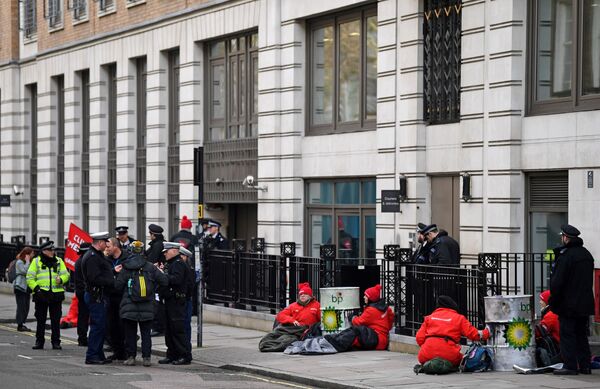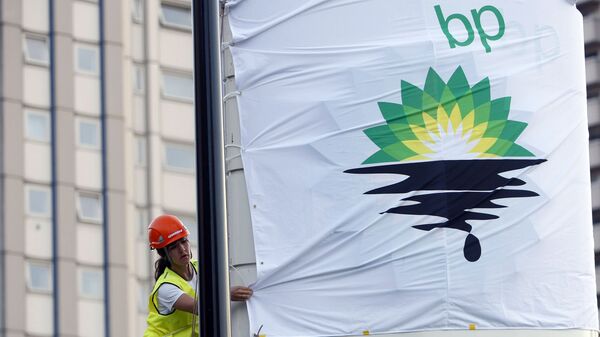BP’s new chief executive, Brian Looney, has promised to "reinvent" the company and steeply reduce its carbon emissions by 2050.
The world’s top oil and gas companies have come under pressure from investors, climate activists and governments to meet targets within the 2015 Paris climate accord which aims to limit global warming to below 2 degrees Celsius.
— Akshat Rathi (@AkshatRathi) February 12, 2020
BP said it planned to halve its Scope 3 emissions - the intensity of the carbon emissions of its oil and gas production - by 2050.
Scope 3 emissions measure the amount of greenhouse gas emissions per unit of energy or barrel of oil and gas produced.
Speaking on Wednesday, 12 February, Mr Looney said: "We need to reinvent BP. The world’s carbon budget is finite and running out fast; we need a rapid transition to net zero. We all want energy that is reliable and affordable, but that is no longer enough. It must also be cleaner."
— Andrew Logan (@ALoganCeres) February 12, 2020
He said he wanted BP to become a "force for good in the world."
But his fine words fell short of the demands of climate change activists.
BP’s targets were more ambitious than Royal Dutch Shell or Total but compared badly to those of Spanish oil firm Repsol.
Charlie Kronick, Greenpeace UK’s oil adviser, said: "BP's 'ambitions' and 'aims' all seem to apply to Looney's successors, and leave the urgent questions unanswered. How will they reach net zero? Will it be through offsetting? When will they stop wasting billions on drilling for new oil and gas we can't burn? What is the scale and schedule for the renewables investment they barely mention? And what are they going to do this decade, when the battle to protect our climate will be won or lost?"
Last week BP shut its London head office for a day after more than 100 Greenpeace activists attempted to put up 500 solar panels in front of BP's headquarters in St James' Square and rolled oil barrels in front of the building's main entrance.
Mr Looney mentioned the demonstration during his speech on Wednesday and said it was "uncomfortable" for BP to be "out of step" with public opinion.
He said climate change was also a "business opportunity" and added: "Trillions of dollars around the world will be invested in replumbing the global energy industry."

US oil giants Exxon, Chevron and ConocoPhillips - aware that President Donald Trump is sceptical about climate change and business-friendly approach to the American economy - have set far less ambitious targets than their European rivals.
BP has tried to wean itself off oil and gas before and failed - almost 20 years ago it launched a Beyond Petroleum plan which included ambitious proposals for a new renewables business but it failed with huge losses.
— Ron Bousso (@ronbousso1) February 12, 2020
Mr Looney said BP would dismantle the traditional model of an upstream oil and gas production unit and a downstream refining and trading unit.
The business will be reorganised into four units: Production and Operations, Customers and Products, Gas and Low Carbon Energy, and Innovation & Engineering.
Rachel Kennerley, climate campaigner at Friends of The Earth, said Mr Looney's announcement was an "inadequate" and "cynical" response to climate breakdown.
She said: "It's an obvious, bare-faced act to maintain their dirty business and it's this short-sighted vision that has contributed to the crisis we face...The world is burning, and they want to carry on supplying the fuel. Governments must call time on dirty gas, coal and oil, and on those companies wanting to keep the fossil-fuel addiction alive and kicking."


